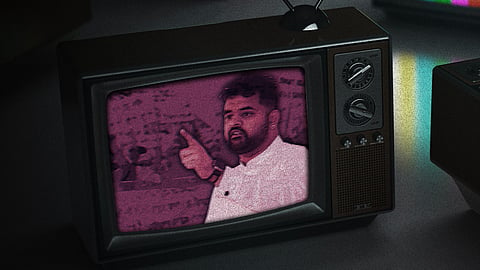Ethical questions: Media’s ‘Kaama’ language in Prajwal Revanna coverage
The media have been on a slippery slope in their haste to cover the story about the 3,000-odd sexual abuse videos allegedly recorded by Janata Dal (Secular) leader Prajwal Revanna, who is seeking re-election to the Hassan Lok Sabha seat. At the more responsible end of the spectrum, the media have placed concern for the women at the centre of their reportage, but on the other end are news channels that have even gone to the extent of telecasting visuals from the videos against the backdrop of sensual film songs. But much of the coverage falls in between these two ends. It is well-intentioned but frames the alleged violence in disturbing ways that can distress the women in the videos. Reportage has also used sensational language, revealed survivors’ faces and identities, asked troubling questions to interviewees, and even speculated about the alleged assault.
Allegations against Prajwal, the grandson of former prime minister HD Deve Gowda, came to light on April 25, after the Karnataka State Commission for Women received a complaint about videos of women being sexually assaulted being leaked in pen drives across Hassan district just days before the polls. The videos have since been shared widely on social media, the women’s faces clearly visible, making it hard for the women to go about their daily lives, even as politicians from Karnataka’s major political parties – the Congress, BJP, and JD(S) – engage in a political blame game. So far, three FIRs have been filed against Prajwal and his father HD Revanna. While Prajwal is absconding – he reportedly fled the country on April 27 – Revanna is now in judicial custody on charges of kidnapping.
In the early days of the coverage, when the details were still sketchy, a common thread in many Kannada news shows was the titillating and salacious language used to describe Prajwal’s alleged actions. English and Kannada media have variously described the issue as a sex scandal, sleaze videos, obscene videos scandal, objectionable videos, and sexual assault videos. ANI, one of India’s biggest news agencies, has persistently called it ‘obscene videos’.

